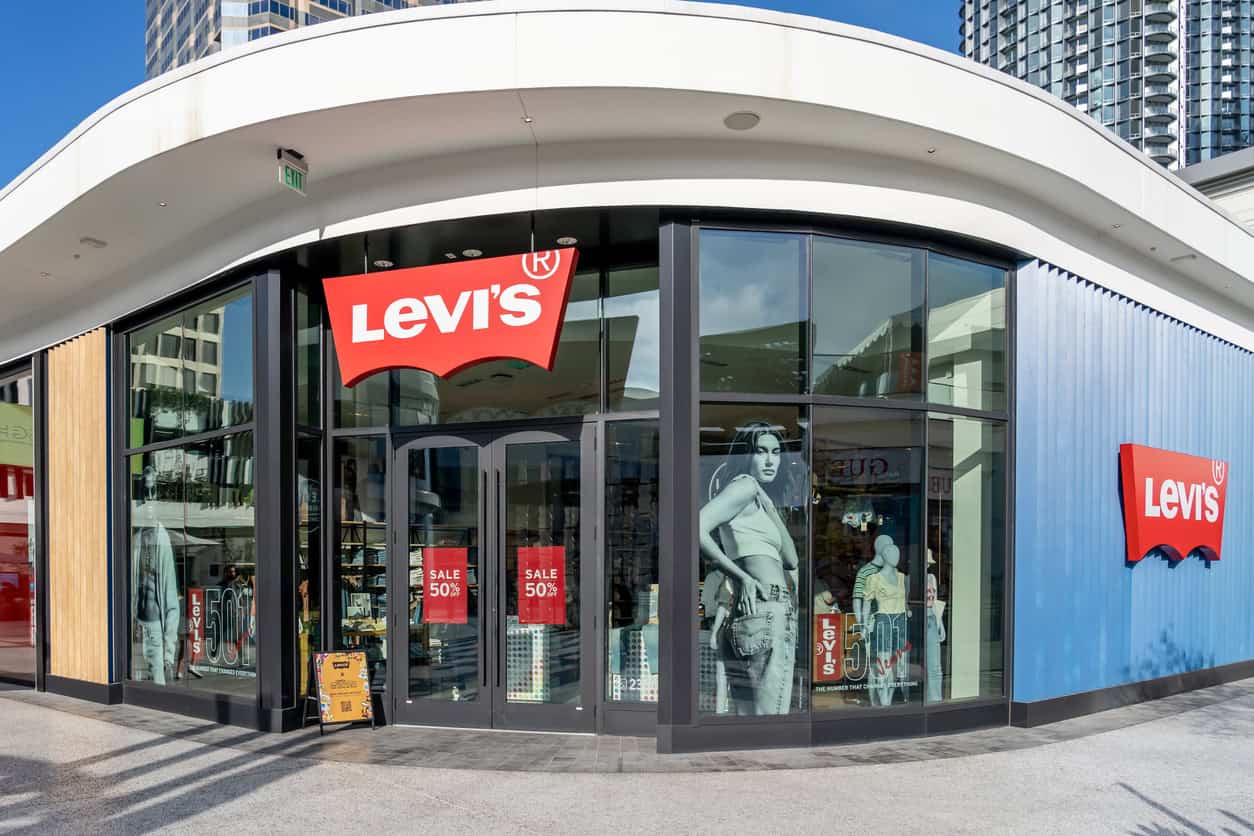
iStock.com/JHVEPhoto
Should More Retail Stores Emulate Levi’s ‘NextGen’ Format?
Levi Strauss & Co. has launched a revamped store in Kyoto, Japan, adopting the “NextGen” format aimed at improving the shopping experience. The newly reopened Levi’s store, located in the Teramachi Kyogoku shopping district, occupies a spacious 570 square meters across four levels. This expansion makes it more than double the size of its predecessor, which had just two floors.
And this isn’t your typical Levi’s store in any standard shopping center or location. Through a combination of store design layout and locally tailored offerings, it makes a statement and aims to generate more sales from its community and beyond.
According to an interview in 2020, Levi’s NextGen stores feature innovative designs, digital enhancements, and revamped operational models, all tailored to emphasize customization, fit, and style guidance. This approach aims to deepen the connection between the brand and its consumers, leveraging brand content and omnichannel capabilities.
Feedback from consumers has been overwhelmingly positive so far. According to Alanna Shipley, director of global shopper insights for Levi Strauss & Co., “Consumers really like the look and feel of our NextGen stores. During testing they talked extensively about how the concept is a nice combination of Levi’s long history with a modern twist.”
The fitting rooms, in particular, have been a standout feature, described as upscale spaces that customers actually enjoy spending time in. The design team prioritized creating spacious, comfortable fitting rooms, fostering an environment conducive to style tips and interaction with both friends and Levi’s stylists.
According to Levi’s, a significant portion of conversions, approximately 70%, occur when customers engage with the fitting rooms. This highlights the importance of offering an engaging and comfortable fitting room experience as part of the overall retail journey.
Another thing customers like about Levi’s NextGen stores is the introduction of Tailor Shops. Consumers have expressed enthusiasm for the range of customization services offered, seeing it as a compelling reason to revisit the store. While customers may limit their denim purchases annually, the ability to personalize items for themselves or as gifts provides an incentive to return.
In 2020, Levi’s opened the doors to its first U.S. NextGen store in Palo Alto, California. Spanning 2,650 square feet, this store was designed for the modern shopper, featuring an inventory curated based on local customer data. In line with the evolving retail landscape, the store integrated a suite of digital in-store tools, catering to the needs of tech-savvy customers.
To celebrate the reopening of the Kyoto location, the store is offering limited-edition items exclusively available in Kyoto. Additionally, the interior space’s design and decor draw inspiration from Kyoto’s rich history and culture. It features lanterns crafted by the renowned Kyoto-based lantern maker, Kojima Shoten, and decor elements adorned with kara-kami paper from the well-established local brand, Karacho.
A standout feature of the Kyoto store is the Levi’s Tailor Shop on the ground floor. Here, shoppers can customize their Levi’s apparel through various options like embroidery, patches, and fabric paneling. Some materials and customization choices will be exclusive to this location, including rare fabric from the renowned Chingireya antique textile store and patches designed by local illustrator Hideto Honda. This customization service aligns with the store’s goal to cater to shoppers’ desire for self-expression.
“With the Kyoto store, we’ve built a unique experience representative of the culture and history of the city,” David Hamaty, general manager for North Asia at Levi Strauss & Co., said in a press release. “We’re also bringing to life exclusive, hyperlocal customization options that will allow shoppers to tailor their Levi’s apparel to their specific taste and expression.”
Levi’s piloted the NextGen concept in Europe and Asia and has since opened a few other NextGen stores in global locations like Latin America.
Discussion Questions
What does the significant conversion rate in fitting rooms reveal about the importance of physical retail spaces in an increasingly digitalized shopping landscape, and how can other retailers leverage this insight to enhance their in-store experiences?
As Levi’s expands its NextGen stores globally, each reflecting the local culture and history, how can brands strike a balance between maintaining a consistent brand identity and adapting to diverse cultural nuances to create authentic connections with consumers worldwide?
